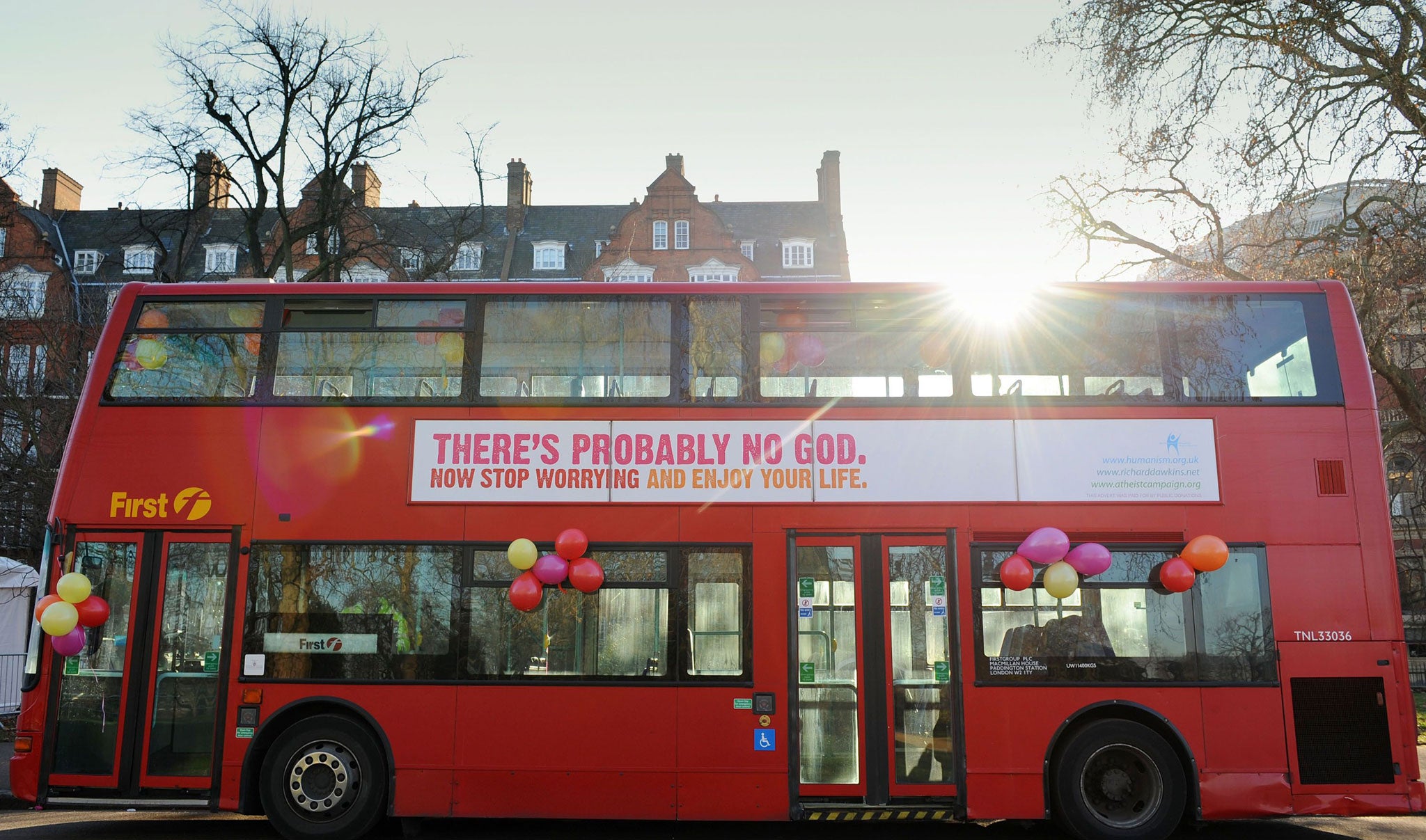The God Argument, By AC Grayling
Virtuous atheists may live well and do good – but can they give hope to the hopeless cases?

Your support helps us to tell the story
From reproductive rights to climate change to Big Tech, The Independent is on the ground when the story is developing. Whether it's investigating the financials of Elon Musk's pro-Trump PAC or producing our latest documentary, 'The A Word', which shines a light on the American women fighting for reproductive rights, we know how important it is to parse out the facts from the messaging.
At such a critical moment in US history, we need reporters on the ground. Your donation allows us to keep sending journalists to speak to both sides of the story.
The Independent is trusted by Americans across the entire political spectrum. And unlike many other quality news outlets, we choose not to lock Americans out of our reporting and analysis with paywalls. We believe quality journalism should be available to everyone, paid for by those who can afford it.
Your support makes all the difference.Some years ago AC Grayling gave me a Christmas card that he had drawn himself. It was a simple nativity scene, complete with stable, baby, mother, ox and ass; there was a speech bubble above saying: "It's a girl!" That kind of wit is sadly lacking from The God Argument. In person, Anthony Grayling is charming, engaging and kind. But post 9/11, with religion high on the social agenda, he has become in print stern, unrelenting and unforgiving when it comes to faith.
Get money off this book at the Independent bookshop
The God Argument is a book of two parts, the first a tearing-apart of the arguments for religious belief, including the standard philosophical proofs for the existence of God, and the second a manifesto for humanism. Grayling writes in the first like an angry Old Testament prophet, railing at religionists for their foolishness and hypocrisy, and in the second like a born-again preacher. Humanism is for him the way, the truth and the life.
These arguments have been rehearsed on many occasions, particularly by the likes of Richard Dawkins and Christopher Hitchens, saluted in the introduction for their advancing of "the task" and "the cause". Religion is no better than astrology or magic; it is about the indoctrination of children; believers often cherry-pick and are dreadful hypocrites; and "many of the apologists of religion are eager to believe, even self-deceive". While Grayling concedes that religion has been responsible for fine art and music, he lambasts it for its causing wars and misery.
Even the atheistic psychopaths such as Hitler and Stalin are deemed akin to practitioners of religions in their totalitarianism and their enmity to Enlightenment values. This is not only a simplistic jibe but an insult to the millions who died at their hands because of their faiths. It's like claiming a mugger derived his criminal strategy from the approach his victims take to walking down the road.
For anyone wanting an account of standard philosophical arguments, Grayling proves useful, explaining the metaphysical debates about God's existence being necessary, the originator of creation and the first cause. By this stage the reader is warming up for his undergraduate work-out in the philosophy gym, when wow! All thought of the next press-up is abandoned as you are floored by a full-scale row.
Alvin Plantinga is the philosopher who gets both of Grayling's barrels, as a leading proponent of the ontological argument (using reason to establish the existence of a deity). Plantinga has gone on to claim this argument proves not that God exists but that it is rational to think he exists, and entirely reasonable to say that there is a maximally great entity. His claim that this is a rational argument causes Grayling to see red. But Plantinga's description of Dawkins as "dancing on the lunatic fringe" undoubtedly adds to the fire. The forthright riposte from Grayling is to accuse Plantinga of "complete intellectual irresponsibility".
I would have preferred to see what Grayling had to say about Antony Flew, one of the most influential atheistic philosophers of our time and author of The Presumption of Atheism. He declared in 2004 that he had become a theist, on the grounds that the origins of life indicate a creative intelligence. But Flew doesn't get a mention.
Grayling's earnest manifesto for humanism had much the same effect on me as eating too much lettuce did on Peter Rabbit. While wit was as absent as in part one, I was roused to laughing out loud by his explanation of how important it is to be active, rather than idle: "The engagement does not have to be any more taxing than reading, knitting or gardening, though for some it has to take the form of climbing Everest or going to the moon. And there are plenty of worthwhile and creative activities in between".
Apart from their vilification of theists, one gets the impression that humanists are always nice, polite, and middle-class. They are as keen on people being good as any vicar. The trouble is people aren't always nice, and atheism has little to say about that. Attend a humanist funeral and you'll see it works for someone who was pleasant, worked hard, and left behind a loved family. But there is no hope of redemption for anyone who doesn't measure up. It's that search for meaning and hope for the hopeless that continues to capture the imagination of those convinced of their faith, for all the rational arguments put forward by Grayling and his fellows in "the cause".
Catherine Pepinster is editor of 'The Tablet'
Join our commenting forum
Join thought-provoking conversations, follow other Independent readers and see their replies
Comments